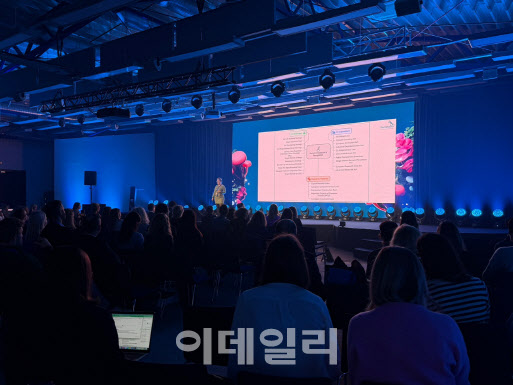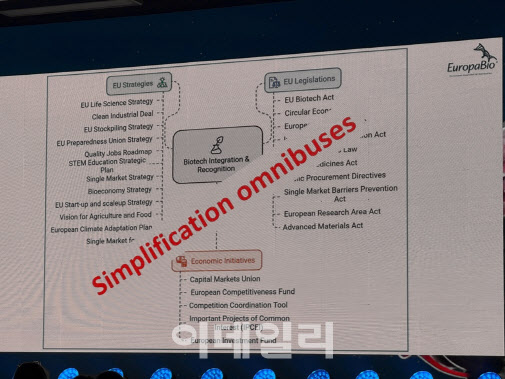[Vilnius(Lithuania)=Lim Jeong-yeo, Edaily Reporter] In order for Europe to maintain competitive edge in the global pharmaceuticals market, the 27 member states of the European Union are pushed to adopt new legislative framework to streamline and accelerate drug approval processes in the region.
Life Sciences Baltics 2025, held Sept. 17-18 in Vilnius, Lithuania, opened arena for stakeholders to discuss the much-needed EU BioTech Act and its implications.
 | | “The EU Biotech Act -- leading Europe’s evolution and revolution for competitiveness” session at Life Sciences Baltics 2025(Photo=Lim Jeong-yeo, Edaily) |
|
The EU BioTech Act, first announced in July 2024 by President von der Leyen, is the key to future innovations in the European novel drug market, with details set to be finalized by end of 2026 and no later than 2027, according to market authorities.
Claire Skentelbery, Director General of EuropaBio, said in the session titled “The EU Biotech Act -- leading Europe’s evolution and revolution for competitiveness,”that “Biotechnology is where Europe really has its biggest footprint to be a global leader, and the markets are built by the legislations we have. There are some gamechager legislations and strategies that are on the table right now that will set how attractive Europe is as market for medicines.”
 | | (Photo=Lim Jeong-yeo, Edaily) |
|
“Europe has amazing capacity for invention -- it’s been doing this for hundreds of years. What we need to do is make sure we move at scale and with speed,”Skentelbery said, “Europe needs to get things to market faster. We will not change any of the safety regulations, but how quickly you can get to market using the existing targets we have.”
The fragmentation and incoherence of the 27 EU member states’ authorization process are another significant issue to be addressed by the EU BioTech Act, Skentelbery suggested.
“What we want to achieve in the BioTech Act is this: to straighten value chains right from R&D through to the commercialization stage and to simpify the regulatory pathways and show legislative coherence through member states,” Skentelbery said, adding, “From January to June 2027, Lithuania will hold presidency at the Council of European Union. Please make the most out of this amazing opportunity to state your priorities and achieve what you want.”
 | | From left: Claire Skentelbery, Director General of EuropaBio, and Kristin Thompson, Investment Director at Merieux Equity Partners(Photo=Lim Jeong-yeo, Edaily) |
|
Kristin Thompson, Investment Director at Merieux Equity Partners, added to the conversation from a venture capitalist’s viewpoint.
Thompson said, “For an investor the return on investment is calculated by patent life. A prolonged authorization process leads to loss in the number of years of market exclusivity. As it takes time to reach peak sales in Europe due to multiple countries with multiple approaches for market authorization, topped with complex reimbursement process, drugmakers are dissuaded from trying European market first.”
She continued, “Despite Europe being the second strongest market geographically, it is much more attractive to register a new medication in the U.S. than in the Europe. We live in a very complex environment here, where we do not facilitate a single market authorization. Our procedures lead to at least a six months’ delay compared to the system in the U.S.”
In resonpse to Edaily’s enquiry whether the streamlined authorization process will favorably impact foreign entities as well as the European players, Thompson said, “As long as the data is good, a medication that is better or cheaper would benefit Europe.”